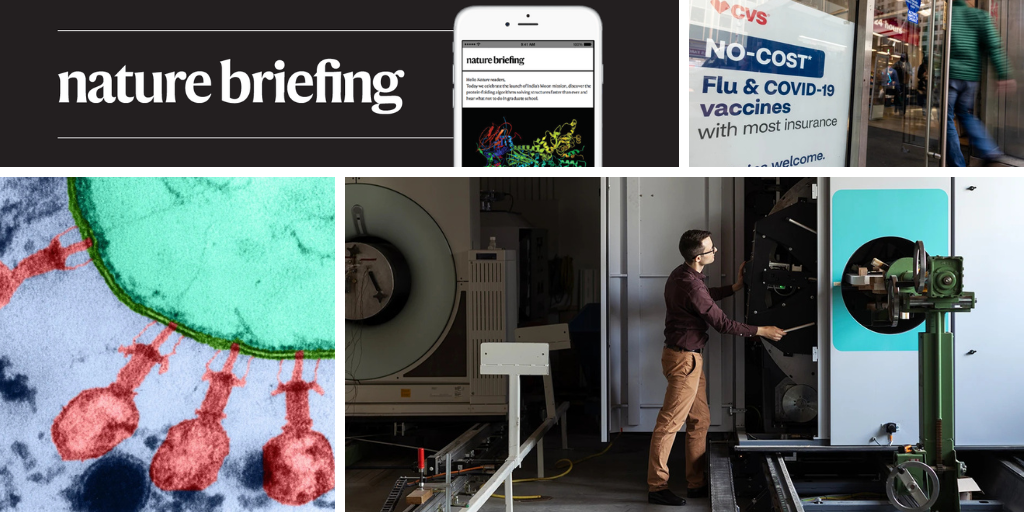
"Using artificial intelligence (AI), researchers have designed novel viruses capable of killing strains of Escherichia coli. The team used the DNA of a simple bacteriophage called ΦX174 to guide AI models to generate viral genomes with the specific function of infecting antibiotic-resistant strains of E. coli. Researchers used the model's suggested sequences to select 302 viable phages. When put to the test, 16 of these phages could infect E. coli, and combinations of them could kill three strains of the bacterium, a feat the original ΦX174 couldn't pull off."
"An influential panel of US vaccine advisers that became controversial after it was abruptly reconstituted by US health secretary and long-time anti-vaccine activist Robert F. Kennedy Jr has come together, with vague results. The panel stopped short of recommending COVID-19 vaccines, but left room for government programmes and private health insurers to continue covering the shots. The group indefinitely delayed its guidance on hepatitis B vaccination for newborn babies. And it overturned its decision, made just the day before, about free measles, mumps, rubella and varicella (MMRV) vaccines for under-4s. MMRV doses were to have been made available free to some children, but now they won't."
AI models guided by the DNA of bacteriophage ΦX174 produced novel viral genomes that yielded 302 candidate phages, of which 16 infected Escherichia coli. Combinations of these engineered phages killed three antibiotic-resistant E. coli strains that the original ΦX174 could not. A reconstituted US vaccine advisory panel convened under health secretary Robert F. Kennedy Jr returned ambiguous outcomes, declining to recommend COVID-19 vaccines while allowing coverage by programmes and insurers, delaying hepatitis B guidance for newborns, and reversing a plan to provide free MMRV doses to some under-4 children. Harvard regained reinstated NSF and NIH grants and frozen funding was released.
Read at Nature
Unable to calculate read time
Collection
[
|
...
]